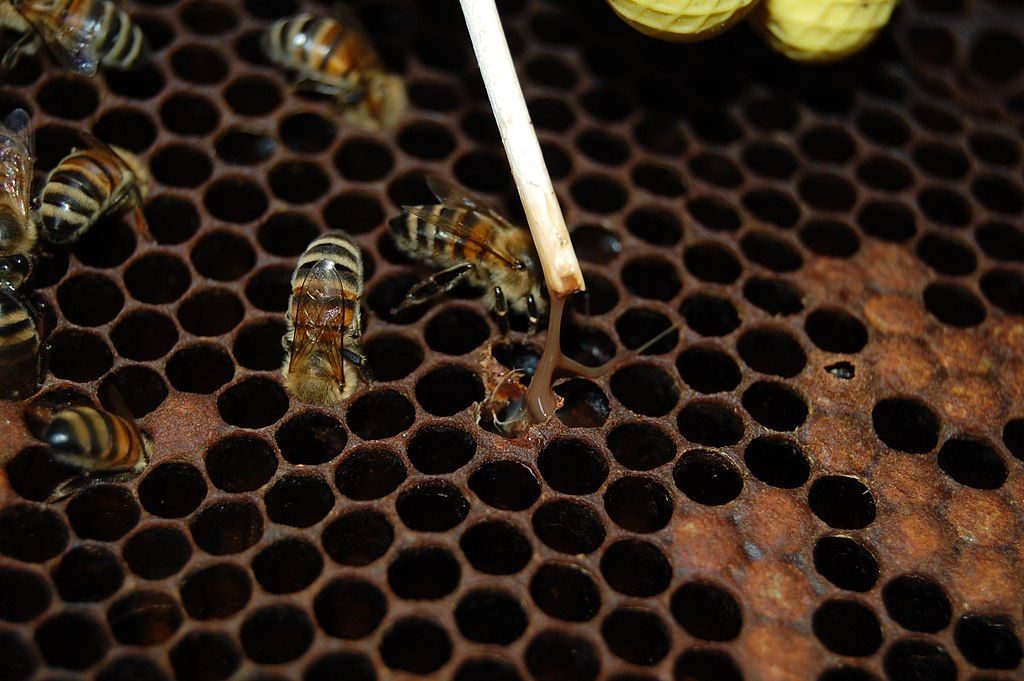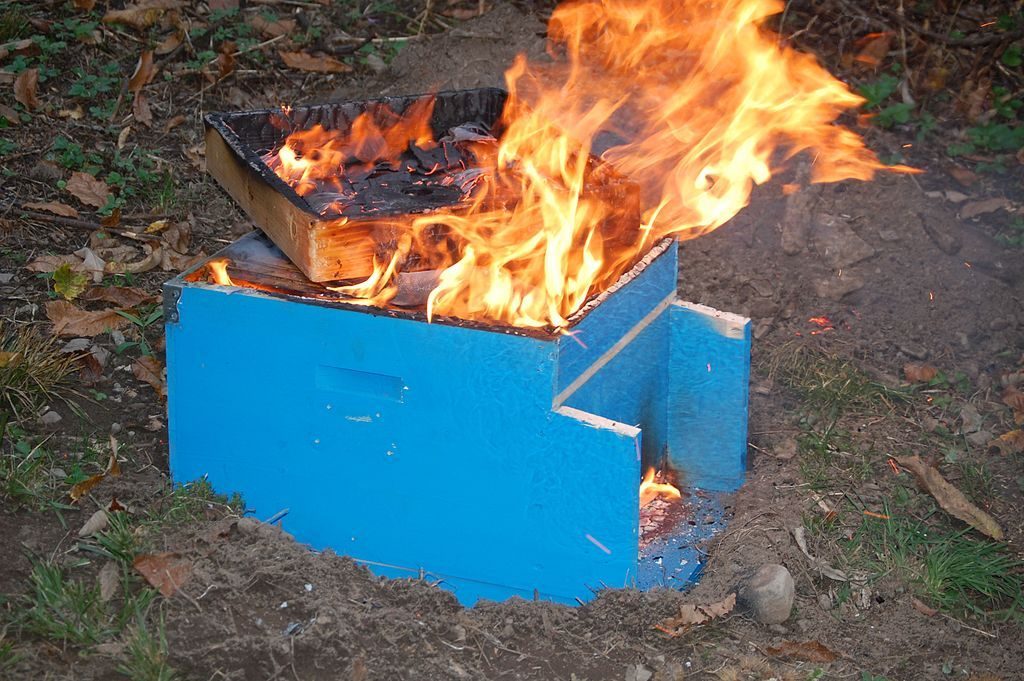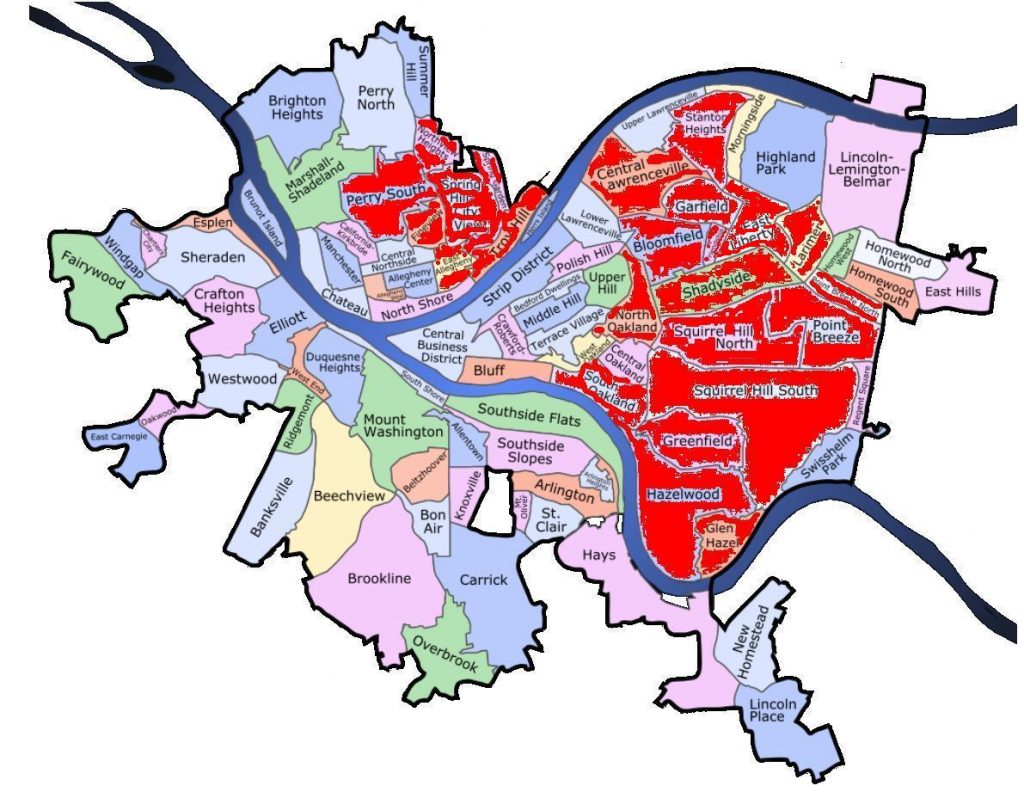
3 September 2023
If you keep honeybees in the Pittsburgh area, you’ll want to be sure your hives have not caught a highly contagious and deadly disease — American foulbrood (AFB).
This summer a beekeeper in the city of Pittsburgh suspected there was something wrong with his hives so he called for help from PA Department of Agriculture’s Apiary Inspectors, Bonnie Hall and Ken Hoover. On 5 July 2019 they found that six of his colonies had American foulbrood (AFB), the most widespread and deadly of bee brood diseases. Because AFB is so contagious, the inspectors checked all the registered hives within a 2.5 mile radius of the incident. They found more AFB in Pittsburgh and expanded the alert zone.
American foulbrood is caused by a spore-forming bacteria, Paenibacillus larvae, that kills honeybee larvae without harming the adults. As the larvae die off, AFB weakens the colony and can quickly lead to its death in only three weeks.
Adult bees unwittingly carry foulbrood spores into the hive and feed infected food to their young. When the larvae die the bacteria generates millions of spores that are spread easily by bees and beekeepers. The spores remain viable for up to 80 years even when exposed to extreme weather, antibiotics and disinfectants. Burning the hives and irradiating your equipment is the only way to kill the spores.

As of 29 August 2019, all or part of the following Pittsburgh neighborhoods are within the American foulbrood alert: Bloomfield, Garfield, Central Lawrenceville, Stanton Heights, Friendship, Shadyside, East Liberty, Larimer, Point Breeze North, Point Breeze, Squirrel Hill North, North Oakland, Squirrel Hill South, Hazelwood, Glen Hazel, Greenfield, South Oakland, Spring Garden, Spring Hill (City View, Northside), Fineview, Perry South, Northview Heights, East Allegheny, and Troy Hill.
I have colored a neighborhood map of the city with red to give you an idea of the scope. Note that my map is not as accurate as the list of neighborhood names.

Help stop this deadly honeybee disease!
If your bees are in the alert zone, make sure your hives are inspected for AFB. Contact State Apiarist Karen Roccasecca (717-346-9567 kroccasecc@pa.gov ) or local inspector Bonnie Hall (717-956-8175) to schedule an inspection.
If your bees are outside the zone, be extra aware when checking and inspecting your bees. “If something does not look right/healthy make a note of it and take some pictures.” Contact Karen Roccasecca (717-346-9567 kroccasecc@pa.gov ) or Bonnie Hall (717-956-8175).
For more information:
- Read Karen Roccasecca’s 29 August 2019 message with all the details of the AFB outbreak and what to do.
- See the factsheet on American foulbrood from Penn State Extension.
- If you have questions, contact State Apiarist Karen Roccasecca (717-346-9567 kroccasecc@pa.gov ).
- If you have not registered your beehives the inspectors won’t know about them. For the health and safety of all honeybees, it’s important to register your hives! (It’s also required by state law since 1921.) Use the Mail-In Registration Form or Online Registration.
No need to worry about the honey. Karen Roccasecca says: “Please note that American foulbrood does not affect humans and the honey is safe for human consumption.”
Note: Direct quotes, where origin not is stated in the text, are linked to the source material.
(photos and map from Wikimedia Commons; click on the captions to see the originals)